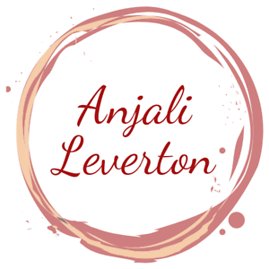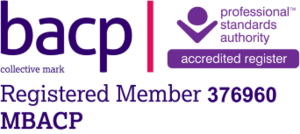De-mystifying Counselling & Challenging the Stereotypes
Challenging stereotypes is something that I'm passionate about both personally and professionally and part of my commitment to you is to be open and transparent, so I thought I would begin that by honestly answering some common questions and challenging some misconceptions that you may have about counselling.
Please note that these are answered entirely from my own perspective and other professionals may work differently.
Can you guarantee that I will feel better by the time I finish counselling?
I can guarantee that I will do my utmost to work with you on your understanding of yourself so that you are able face life’s challenges in a way that leaves you feeling okay about who you are and that you are able to access help and support when you need it. But how you feel when counselling ends will also be dependent on other circumstances personal to you and wherever possible we would look at these as part of the “ending our work together” process.
Will I feel better straight away?
This question doesn’t have a definitive answer.
For some people, sharing thoughts and feelings that they have been keeping to themselves for a long time can feel like a relief – an unburdening – “a problem shared is a problem halved”.
For others it may be similar to taking a plaster off, where you end up uncovering an old wound that starts to sting again but by working through these feelings in counselling, it can be allowed to heal.
How much is this going to cost (I don’t have a bottomless pit of money for this)?
I completely understand that we all have budgets to work to, so if this is something that you are concerned about please discuss this with me as we can look at agreeing a fixed number of sessions. Counselling does not have to go on indefinitely if you don’t want it to.
What needs to be in place for counselling to work?
I believe that there has to be a commitment to the process, from both of us as well as trust between us. Being honest and making sure that you have the counsellor that is the "right fit" for you, is part of this and is one of the reasons why I suggest only booking one appointment at the outset.
Counselling is a passive process where you will tell me what I need to do.
No, as I don't give advice, guidance or solutions to your difficulties because my solutions might not be right for you.
Instead, I give you time and space to talk about the challenges you're experiencing and we work together to explore and understand the context to what is going on. Understanding why you're feeling the way you are and what you can or would like to change or do differently brings a different perspective to the issues and helps us feel less "bogged down".
It is very definitely an active process that we both have to engage with, in order to bring about any changes in how you are feeling.
How does confidentiality work?
Confidentiality is an important part of the counselling relationship and wherever possible I would maintain this so if, for example, I bumped in you whilst out and about, whilst I would say hello if we passed, I wouldn't introduce myself as a counsellor or say how I know you.
However, if you told me that you were involved in a serious illegal activity such as drug trafficking, I’m legally obliged to notify the authorities. Additionally, if you told me that there is a risk of serious harm to yourself or someone else I might have to share details with other support organisations, but wherever possible I would discuss this with you first.
I always ensure that I discuss all aspects of confidentiality with you in our first session and would provide you with a contract outlining how it works, because its important to me that I am transparent about how I work.
Do you make notes as I speak?
Yes and No.
I will make notes during our first session together which is primarily an opportunity for you to get to know me and for me to understand what support you are looking for.
I don't take notes during subsequent sessions. However, I may make notes afterwards to assist me in our work but please rest assured that these are completely anonymised so you wouldn't be identifiable and they're stored securely, in line with current data protection legislation. You can find more information about this in my privacy notice.
Counselling is just for women; it’s easier for them to talk about their feelings.
No.
Counselling is suitable for everyone but sharing our innermost thoughts and feelings is not always easy particularly if we’ve been ignoring them for some time. This is not gender-specific. I think this myth may have been borne out of gender-stereotypes where men were expected to hide emotions to be seen as “strong”.
What happens if I run out things to say half through a session?
That is absolutely fine; silence can be a wonderful thing, but if you feel uncomfortable with this we can discuss it.
I have often heard people wonder what they will talk about for 50 minutes but you will be surprised at how quickly that time passes once we've begun working together.
You are only interested in my past/my childhood?
No.
My personal belief is that we are the people we are today, because of everything we've learnt and experienced to date, a bit like a book made up of many chapters. So, in order to understand what you're experiencing today, it can be helpful for us to look at what's happened in the past, but that's not all that I am interested in. In fact, the focus would generally be more on what is happening in the here and now for you, and what you want going forward.
Do I have to lie on a couch?
No.
Whilst my rooms are comfortable there aren’t any couches. I think this idea dates back to the time of Freud and more recently from how counselling has been portrayed in films and on TV.
What do I do if I am not happy with my counsellor/counselling?
I always encourage openness in my sessions so would hope that you'd be able to share your feelings with me so that we can discuss how we ensure that you are getting the support that you need.
Prior to this, and ideally before starting work with a counsellor, I would always recommend checking the counsellor’s qualifications as well as their professional registration as, unfortunately, this industry in currently unregulated which means that anyone can call themselves a counsellor. The British Association of Counselling and Psychotherapy (BACP) , National Counselling Society (NCS) and United Kingdom Council for Psychotherapy (UKCP) are 3 examples of such bodies that are accredited by the Professional Standards Authority and they each have their own code of conduct and complaints procedure.
I am a member of the British Association of Counselling and Psychotherapy (BACP) and adhere to their Ethical Framework.
If you have any questions that I haven't covered here, please get in touch .


